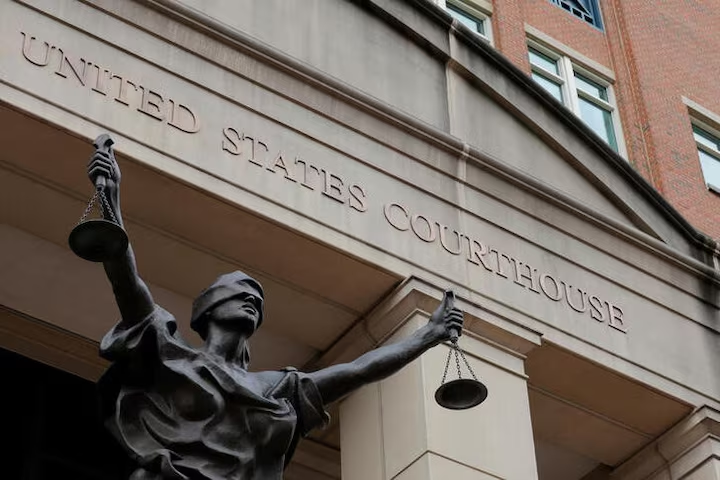Dec 24 (Reuters) – The U.S. federal judiciary’s leadership on Tuesday called President Joe Biden’s decision to veto a bill that would have added 66 new judges to understaffed federal courts nationally “extremely disappointing” and urged lawmakers to again try to enact the “essential” legislation.
U.S. District Judge Robert Conrad, the director of the Administrative Office of the U.S. Courts, in a lengthy statement said Biden’s Monday night veto of the JUDGES Act reflected a “regrettable” failure by his administration to support the judiciary.
“The president’s veto will contribute to the pattern of growing caseloads and increasing backlogs that hurt litigants and weakens public confidence in our courts,” Conrad said.
The White House did not respond to a request for comment.
The JUDGES Act, initially supported by many members of both parties, would have increased the number of trial court judges in 25 federal district courts in 13 states including California, Florida and Texas, in six waves every two years through 2035.
Hundreds of judges appointed by presidents of both parties took the rare step of publicly advocating for the bill, saying federal caseloads have increased by more than 30% since Congress last passed legislation to comprehensively expand the judiciary in 1990.
It received the Democratic-led Senate’s unanimous approval in August. But the bill lingered in the Republican-led U.S. House of Representatives and was only taken up for a vote after Republican President-elect Donald Trump won the Nov. 5 election and the opportunity to name the first batch of 25
That prompted accusations from top House Democrats that their Republican colleagues had broken a central promise to take up the bill only when no one knew who would appoint the initial wave of judges. Biden issued a veto threat two days before the bill passed the House on Dec. 12 on a 236-173 vote.
Groups including the Federal Judges Association, a non-partisan group that represents most federal judges, and the court reform advocacy group Fix the Court had before Monday’s veto urged Biden to nonetheless let the bill become law.
“Failure to enact this legislation will likely push back the opportunity to pass a judgeship bill for many years,” Conrad, an appointee of Republican former President George W. Bush, wrote in a Dec. 16 letter, opens new tab to Biden that was released on Tuesday.
Conrad said the 66 judges the JUDGES Act would have provided were consistent with the recommendations of the U.S. Judicial Conference, the judiciary’s policymaking body, which Chief U.S. Supreme Court Justice John Roberts heads.
Chief U.S. District Judge Randy Crane, the top judge in the Southern District of Texas, also called the veto disappointing. His district would have gained four new judgeships under the bill to help address what he called “crushing caseloads.”
“On the same day that sentences of scores of capital murders were commuted, the president denies or delays access to justice for ordinary people seeking their day in court through his veto,” Crane said, referring to Biden’s commutation of the death sentences of 37 men earlier on Monday.
Crane, a Bush appointee, in a statement said he hoped the Trump administration “will remedy this failure and move quickly to reintroduce this bipartisan legislation.”
While Biden vetoed the JUDGES Act, he on Monday signed into law separate legislation called the Federal Judiciary Stabilization Act that would convert 10 temporary district court judgeships that Congress previously authorized for a limited time into permanent seats, the White House said on Tuesday.



